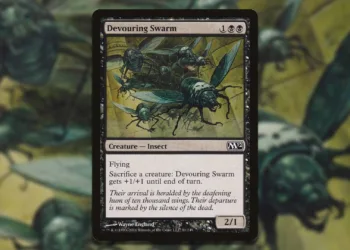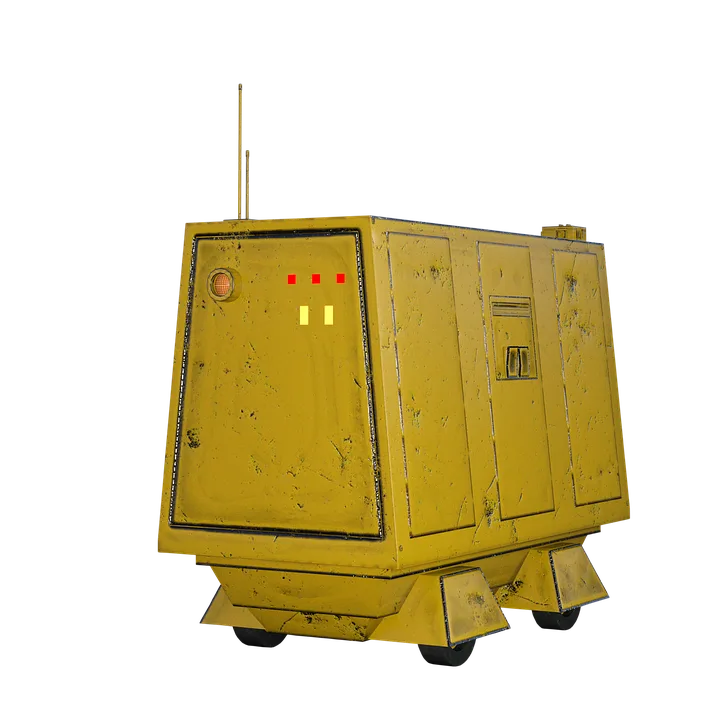The elemental monk subclass for Dungeons & Dragons taps into nature’s elements to boost combat abilities. This unique take on the traditional monk grants the ability to infuse strikes with elemental energy, merging swift movement with powerful elemental attacks.
In the 2024 Player’s Handbook, this subclass has been improved, making it both versatile and robust enough to be considered a new option. In this guide, we’ll cover the main features of the elemental monk, including optimal ability score recommendations, the best feats to choose, and strategies for excelling in elemental combat.
Key Features of the Elemental Monk
The Warrior of the Elements encapsulates the dream of being the Avatar, mastering the elements with exceptional skill. Here, we specifically refer to fire, cold, acid, lightning, and thunder. You can also slightly manipulate the four primary elements through the Elementalism cantrip.
To channel these elements, you’ll spend one Focus Point, the essential resource for monks, allowing you to empower your unarmed strikes with the selected element. These strikes not only deal damage of that type but also extend your range by 10 feet, enabling you to launch bolts of fire or create lightning whips.
The sixth level unlocks your ability to perform ranged area attacks up to 120 feet away, establishing this subclass as one of those better suited for ranged combat among monks. Notably, at level 11, you gain flying and swimming speeds while in tune with the elements, enhancing your versatility both in and out of battle.
Updates in the 2024 Player’s Handbook
The 2014 monk class included a subclass focused on elemental mastery, but the latest version contrasts sharply. Previously, monks primarily learned a handful of spells, most of which were available to wizards or sorcerers. The Warrior of the Elements is designed to feel distinctly like a monk subclass since it heavily emphasizes unarmed strikes and mobility, making characters from the two subclasses easily distinguishable in the same campaign.
Ideal Species Choices
Species now provide less impact on your starting ability scores, allowing you to select any species while still thriving as an elemental warrior. Certain species can enhance your elemental capabilities or fit your character’s theme as a nature-attuned monk.
The Goliath species comes with several abilities that harmonize with elemental powers, as their giant ancestry can add fire or cold damage to attacks. This can add depth to your role-playing, merging your species traits with your monk abilities. Meanwhile, Forest Gnomes can deepen your connection to the natural world, offering spells like Minor Illusion and Speak with Animals that enhance your versatility.
A solid choice, especially early on, is the high elf. Their elven heritage provides a wizard cantrip that can be changed after every long rest, allowing you to adapt to your preferred element, whether it’s Firebolt or Acid Splash.
Optimal Stat Placements
As with all monks, your primary focus should be on Dexterity and Wisdom, essential for your unarmored defense. However, the elemental monk uses Wisdom less practically beyond that—prioritize Dexterity as your main stat.
Constitution should be your third focus to ensure you have enough hit points to endure. Other ability scores can be lower priority, and since monks rarely use Strength, consider it as your dump stat.
Best Elements to Emphasize
Before selecting your elemental attacks, consider the damage resistances and vulnerabilities of your targets. For example, if you attack an imp with fire, you won’t deal any damage due to its fire immunity. If unsure, choose thunder damage since it is widely less resisted. Additionally, if you intend to deal non-lethal damage, thunder is a more forgiving choice compared to something like acid.
Recommended Starting Equipment
Most monks can function without relying on equipment, and this is especially true for the elemental monks. Since you’ll focus on empowering your unarmed strikes, carrying weapons would hinder your ability to unleash elemental attacks.
If you’re starting at level three and your Dungeon Master allows only the standard monk equipment, opting for the 50 gold pieces is wiser than picking the other gear. You won’t need it, and later you can invest in an explorer’s pack when you’re ready.
Top Feats and Backgrounds
Among the various backgrounds available, choose one that enhances both Dexterity and Wisdom while providing a valuable feat. The *Sailor* background is ideal, especially as the Tavern Brawler feat aligns well with monks.
The key benefit of this feat is the capability to reroll unarmed damage when it lands on a one—though only once per roll. Hitting multiple strikes allows you to reroll any ones, boosting your damage output overall.
The feat specifies you “can” deal 1D4 damage instead of your standard unarmed strike damage—not that you “must.” Thus, you can opt to ignore this and use your monk damage die instead.
The feat also allows you to push enemies away without a saving throw, once per turn. This can complement the elemental monk’s existing abilities, giving you a tactical advantage for shoving foes into traps or off cliffs.
For general feats, consider the *Grappler* feat, which enables you to grab an enemy and damage them with unarmed strikes. Your extended reach from elemental attunement might allow grappling from a distance, although you must consult your Dungeon Master for specifics.
Ideal Multiclassing Choices
As an elemental monk, you should be cautious about multiclassing into most spellcasting classes unless aiming for a specific build. This subclass is primarily designed for enhanced martial capabilities. Opting for levels in Fighter can be appealing, granting benefits like bonus actions and self-sustain.
If you’re seeking improvements specifically for monks without straying too far, consider taking a single level in Ranger. This grants access to *Hunter’s Mark*, adding an extra D6 damage to every attack, which is quite beneficial for monks utilizing unarmed strikes.










